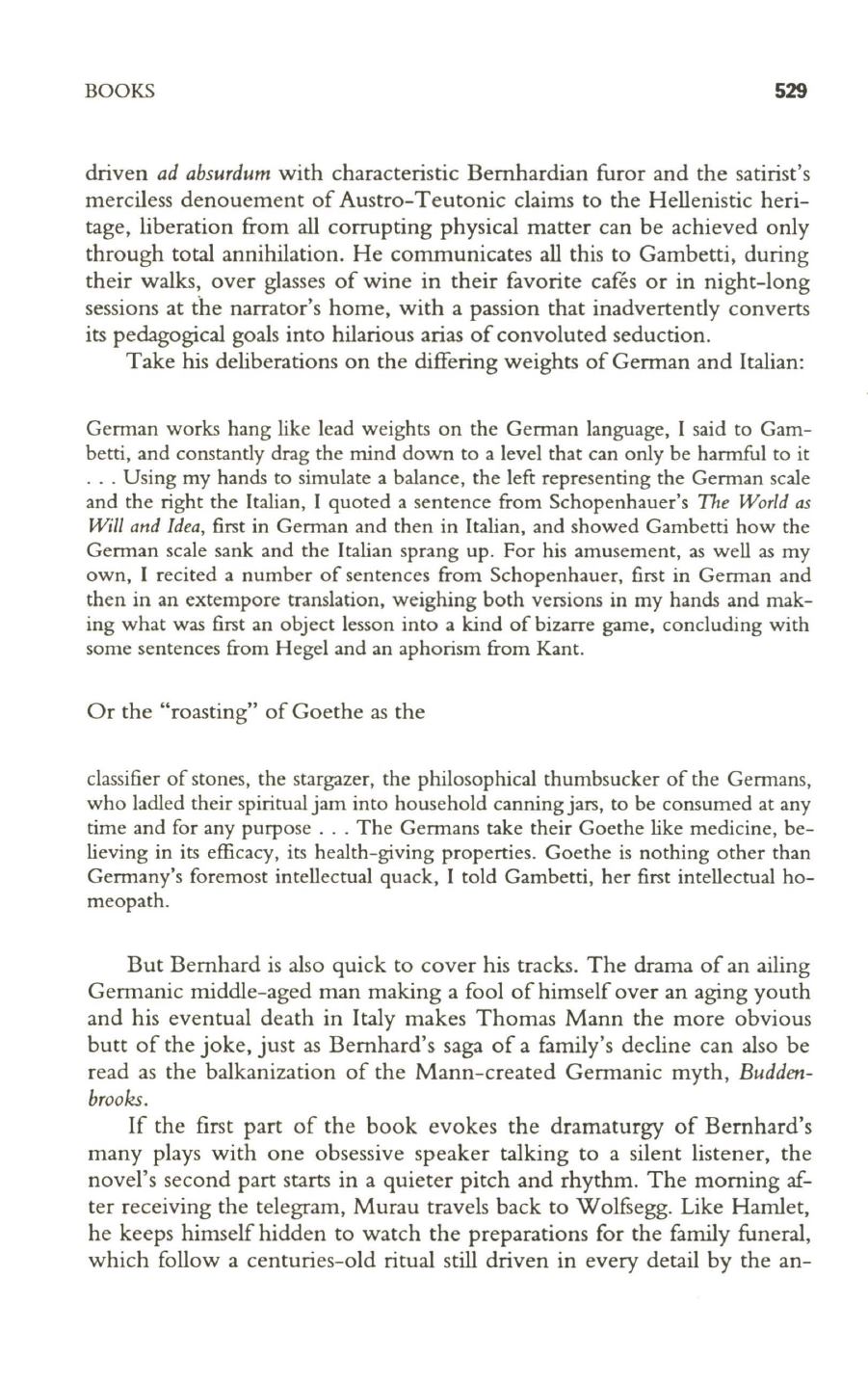
BOOKS
529
driven
ad absurdum
with characteristic Bernhardian furor and the satirist's
merciless denouement of Austro-Teutonic claims to the Hellenistic heri–
tage, liberation from
all
corrupting physical matter can be achieved only
through total annihilation. He communicates all this to Gambetti, during
their walks, over glasses of wine in their favorite cafes or in night-long
sessions at the narrator's home, with a passion that inadvertently converts
its pedagogical goals into hilarious arias of convoluted seduction.
Take his deliberations on the differing weights of German and Italian:
Gennan works hang like lead weights on the Gennan language, I said to Gam–
betti, and constantly drag the mind down to a level that can only be hannful to it
... Using my hands to simulate a balance, the left representing the Gennan scale
and the right the Italian, I quoted a sentence from Schopenhauer's
The World as
Will and Idea,
first in Gennan and then in Italian, and showed Gambetti how the
Gennan scale sank and the Italian sprang up. For his amusement, as well as my
own, I recited a number of sentences from Schopenhauer, first in Gennan and
then in an extempore translation, weighing both versions in my hands and mak–
ing what was first an object lesson into a kind of bizarre game, concluding with
some sentences from Hegel and an aphorism from Kant.
Or the "roasting" of Goethe as the
classifier of stones, the stargazer, the philosophical thumbsucker of the Gennans,
who ladled their spiritual jam into household canning jars, to be consumed at any
time and for any purpose .. . The Gennans take their Goethe like medicine, be–
lieving in its efficacy, its health-giving properties. Goethe is nothing other than
Gennany's foremost intellectual quack, I told Gambetti, her first intellectual ho–
meopath.
But Bernhard is also quick to cover his tracks. The drama of an ailing
Germanic middle-aged man making a fool of himself over an aging youth
and his eventual death in Italy makes Thomas Mann the more obvious
butt of the joke, just as Bernhard's saga of a family's decline can also be
read as the balkanization of the Mann-created Germanic myth,
Budden–
brooks.
If the first part of the book evokes the dramaturgy of Bernhard's
many plays with one obsessive speaker talking to a silent listener, the
novel's second part starts in a quieter pitch and rhythm. The morning
af–
ter receiving the telegram, Murau travels back to Wolfsegg. Like Hamlet,
he keeps himself hidden to watch the preparations for the family funeral,
which follow a centuries-old ritual still driven in every detail by the an-


